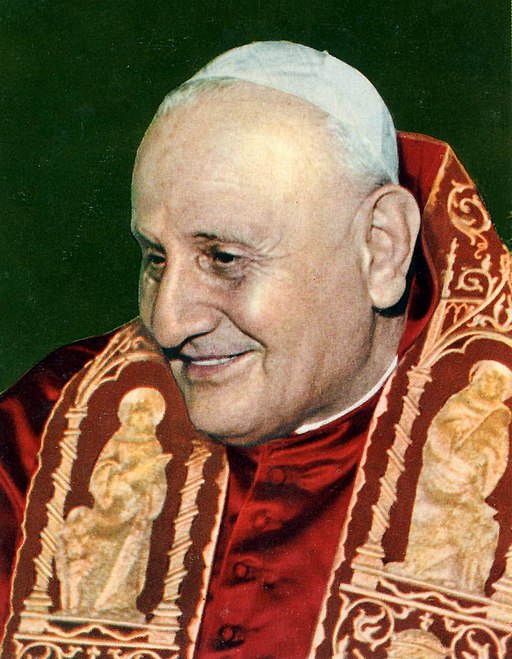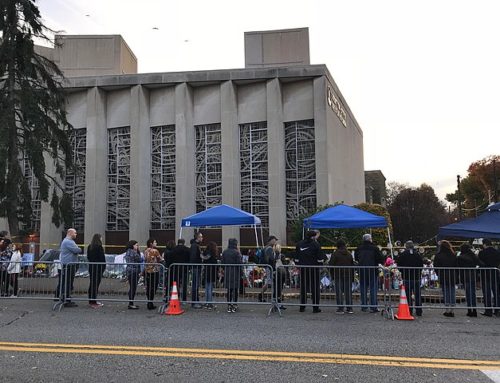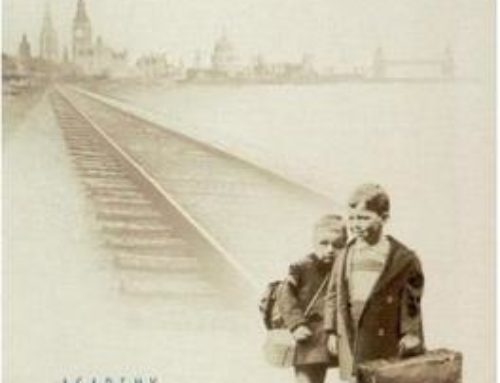Introduction
John XXIII introduced a turning point in history and initiated important reforms for the Church. He was a conservative that sought to cure the Church because it needed radical surgery.
Under his leadership, the Church opened up positive dialogue with the Eastern Church, Protestants, Muslims, Jews, and even Communists.
He was a vital, robust earthly character whose spirituality was simplicity itself.
Upon his election as Pope, he called for a Second Vatican Council. This council initiated a dialogue with other religions and recognition that people of all faiths possess holiness.
John XXIII ushered in a fresh perspective. Under his guidance the Church changed dramatically for the better. With humility and iron will he moved a massive entrenched institution toward a more open relationship and engagement with the world.
First of all, he recognized the legitimacy of competing Christian Faiths, secondly he revolutionized the attitude of the Church toward non-Christians (Jews were major beneficiaries) thirdly opened up dialogue with Communists and lastly embraced the concept of human rights. Lastly, John XXIII thought in terms of fundamental human experiences rather than in concepts
John XXIII supported
-
Freedom of speech,
-
Access to the rights of families,
-
Rights of workers for a living wage.
-
Early proponent of women’s rights.
-
Elimination of racial discrimination
-
Supported nuclear disarmament.
Breath of Fresh Air: When John XXIII met a group of Jews he repeated the biblical greeting, “I am Joseph your brother!”
Why as a Jew do I have such admiration for John XXIII
For centuries the Church through direct action, publications, and even in religious services, unceasingly attacked Jews. In the aggregate, their animosity toward Jews provided an environment that helped foster the holocaust.
Because of John XXIII, the Church’s animosity against Jews was eliminated, leading to a mutual respect.
The Church, in Nostra Acetate, stated that all Jews at the time of Christ were not guilty of his crucifixion and that all Jews today are no more responsible for the death of Christ than Christians. Jews should not be presented as a rejected or accursed by God. Instead Jews should not be persecuted and anti-Semitic Tracts in Church literature should be eliminated.
How did the Reforms under Second Vatican Council impact my life?
Although my late wife—Eloise Lynch Werlin, and I were happily married for 40 years, starting October 1970, I am not certain that we could have taken this step without the profound reforms enacted under Pope John XXIII. While both sets of parents initially opposed our marriage, Eloise and I both felt the better relations that evolved from the Second Ecumenical formed a foundation of mutual respect. Stated differently, until John XXIII, the Church repeatedly imposed harsh conditions on European Jews and subjected them to a whole host of anti-Semitic rhetoric. Alternatively, Jews looked to the Protestant Churches as a preferable alternative because the later were supportive of capitalism, democratic rule, elimination of ghetto restrictions, and were more religiously tolerant.
When I first met Eloise, she was a devout Catholic who attended Mass regularly. After the death of her brother in the Vietnam War, Eloise turned against the Church (1968) because her local priests failed to stand up to her alcoholic father who mercilessly harassed her brother because he had left the priesthood and counseled her mother to remain married despite her husband’s abusive behavior.
Church attitude toward other Christians
The Church apologized for its role in causing a schism between the western and eastern churches.
Change in Church Policy
The Church changed the liturgy and participation by the lay leaders in church rites.
Overview of the Catholic Church
Since John Paul II, the Church has elected non-Italian popes. Until then Italians totally dominated the Vatican bureaucracy and therefore set the tone for Church policies. These bureaucrats (holding major positions for decades and possibly centuries) in general were opposed to change.
Conflict between Modernists and Traditionalists
While there still is conflict between Modernists and Traditionalists, the later in general has become more moderate. Simply said Modernists—clergy who accepted democracy, labor unions, capitalism, and more lay involvement versus Traditionalists who preferred aristocratic rule and a feudal economic system. Traditionalists hoped through military action to restore the political power of the Church. Traditionalists opposed Protestants, Jews, free masons, capitalism and supporters of a Republic form of government. Depending upon the predilection of the ruling pope, dissenting priests including cardinals were subject to dictatorial punishment and not tolerated.
Early Childhood of the future Pope John XXIII
Angelo Giuseppe Roncalli was the fourth of fourteen children born to a family of sharecroppers. At an early age, John XXIII displayed superior academic talents, enabling him to earn scholarships and become a priest in 1904. Until John XXIII became a cardinal, he faced major economic challenges—childhood mal nourishment, costs of supporting his family, especially his unmarried sisters
Career
Until John XXIII was made Arch Bishop of Venice, he spent approximately 25 years as part of the diplomatic core in Bulgaria (1925-1934), Turkey and Greece (1934-1944), and finally the Vatican Ambassador to France(1944-1953)—the most prestigious position in Catholic Diplomatic Ranks until the United States established formal diplomatic ties with the Vatican.
During those years, John XXIII continued to show humility, tolerance, and compassion.
Bulgaria
For 600 years, the Vatican had not sent an envoy to Bulgaria, a country that had few Roman Catholics. The religious affiliation of most of the population was either Greek Orthodox or Muslim
John XXIII was not initially welcomed in Bulgaria. However, just like his other future assignments he knew how to become effective, respected, and ultimately liked. He reached out to the leading religious leaders in both the Muslim and Greek Orthodox community. He worked hard on charitable events, traveled extensively, and consistently showed compassion for Bulgaria’s poor population.
Turkey was another tough assignment. Again, while the Roman Catholic community was small, John XXIII worked well the other religious leaders. In addition, knowing the plight of Jews, John signed 24,000 certificates allowing Jews to escape the Nazis and secure safety in Palestine. Unfortunately, when John XXIII asked the Secretary of State for the Vatican to intervene more forcefully for the Jews he got a letter that implied the Pope Pius XII was more interested in preserving holy sites than human beings.
As part of his Turkey assignment, John XXIII had responsibility for Greece. Greece was occupied by the Nazis in 1941 and British troops surrounded Greece. Thus, the population was in danger of starving. John XXIII spent countless hours trying to get the British to relax their shipping embargo that prevented food from being imported into Greece.
Summary of Experience prior to appointment to Ambassador to France
In spending so many years in countries where Roman Catholics were a minority, John XXIII recognized that it was foolish to presume that these people would see the errors of their ways and convert to Roman Catholicism. Furthermore, he recognized that much of the problem was attributable to rigidity on the part of the Catholic Church. While John XXIII never wavered in his support for Roman Catholic religious rites, he also understood the practicality of adapting services to the language of the host country.
Ambassador to France
The Vatican hierarchy opposed the appointment of John XXIII, calling him an “Old Fogey.”
A major step up for John XXIII was being assigned Ambassador to France. In part, John got this appointment because De Gaulle was opposed and wished to expel any priest who had collaborated with the Nazis. John XXIII overtime got De Gaulle to moderate his position. Only those priests who had actively worked with the Nazis were eventually expelled.
Backstory
Interestingly enough, there was an impasse between Pope Pius XII and De Gaulle over the timing and naming of the Ambassador. Pius XII wanted to name somebody besides Roncalli and sought to delay the appointment. However, if the Vatican did not appoint an Ambassador by New Year, then the most important official to meet with De Gaulle and welcome in 1945 was the Ambassador from the Soviet Union. Pius XII of course did not want an atheist to replace a good Catholic. Thus, reluctantly, he appointed Roncalli
Again, being very clever and politically adroit, Roncalli apologized to the Soviet Ambassador for usurping his role. Also, the future John XXIII worked hard to help rebuild labor unions, provide food for the needy, and take other important steps for war torn France.
In early 1950’s, Pius XII appointed Roncalli cardinal for Venice, a very prestigious position.
Election as Pope
Roncalli was elected pope in October 1956 at the age of 76. Because of his advanced age, he was supposed to be a caretaker pope. Instead, overcoming the objections of the Curia (almost entirely composed of Italians) he called for the Second Vatican Council. While in theory the Pope is supreme, various bureaucracies have the ability to delay changes. The 800 theologians who were members of the preparatory commissions were not viewed as “forward thinking.”
John XXIII innovative steps
John XXIII had a trick up his sleeve to deal with recalcitrants. In addition to the preparatory commission, he created a so-called Secretariat for Promoting Christian Unity and named as its head Augustin Bea. Bea was a Liberal! Bea who was 80 had been around a long time and had been Pius XII’s personal confessor; thus, he could not be attacked for being against the previous Vatican regime and was tough enough to survive and triumph over the terrible curial infighting.
John XXIII wanted non-Catholics to understand that he wanted ecumenical reunion! Express the old in a new way.
John XXIII, in explicit repudiation of past popes, recognized that workers had the right to belong to a union in order to obtain appropriate wages and working conditions. John XXIII definitely shifted to the Left on social issues
John XXIII understood the importance of emerging nations in Asia and Africa. He understood the importance of global village before the phrase become common place.
In November 1961 for the first time in history, John XXIII, as pope, met with the bishop of the Episcopal Church, Arthur Lectenberger.
Second Ecumenical, October 11, 1962
Invitations were sent to 85 cardinals, 2121 bishops from and theological experts from religions all over the world. Representatives from almost every non-Catholic religion attended.
John XXIII paired a Conservative with a Liberal in order to moderate the contentious debate that prevented meaningful change
Very Important
John XXIII in his opening address criticized “prophets of doom.” Instead, he urged listeners that the Church must look to the present and new conditions. John XXIII said he was not afraid to shed rational light on the mysteries of faith. The key to “the brotherly unit of all would be love and charity.”
The Second Ecumenical let the world see that the Church was open to change and brotherhood.
Reforms Second Ecumenical
-
In recognition that even some cardinals and congregants knowledge of Latin was weak, the council approved the substitution of native languages
Liturgy changes would have to be approved by the pope in order to prevent false practices, but overall this would result in decentralization of power
-
Scripture, tradition and the Church’s teaching would be defined and reaffirmed as the sources of divine revelation




